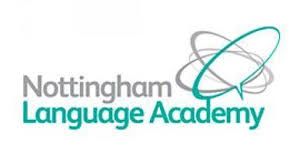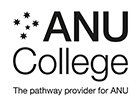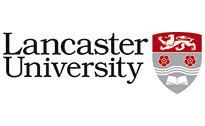
Community Engagement and Participation
Course ID: 2511030107777ESH
Course Dates : 03/11/25 Course Duration : 5 Studying Day/s Course Location: London, UK
Language: Bilingual
Course Category: NGO Programmes
Course Subcategories: Community Development and Engagement
Course Certified By: ESHub CPD & LondonUni - Executive Management Training
* Professional Training and CPD Programs
Certification Will Be Issued From :
From London, United Kingdom
Course Fees: £5,120.30
Vat Not Included in the price. VAT may vary depending on the country where the course or workshop is held.
Click to Pay
Date has passed please contact us Sales@e-s-hub.com
Course Information
Introduction
Community engagement and participation are foundational pillars for the success of any nonprofit or non-governmental organization (NGO). These concepts go beyond mere interaction with stakeholders; they represent a strategic approach to fostering trust, collaboration, and shared ownership in addressing societal challenges. In an era where public trust in institutions is often fragile, NGOs must prioritize meaningful engagement to build sustainable relationships with communities. This course delves into the principles, tools, and strategies necessary for effective community engagement, equipping participants with the skills to design and implement programs that resonate with diverse populations.
The importance of community engagement cannot be overstated, particularly in contexts where social, economic, and environmental issues intersect. For instance, consider the case of a rural development project in Kenya led by an international NGO. Despite substantial funding and technical expertise, the initiative initially faced resistance from local communities due to a lack of consultation and cultural sensitivity. By integrating participatory approaches—such as focus groups, collaborative decision-making, and capacity-building workshops—the organization was able to align its objectives with community priorities, ultimately achieving greater impact and sustainability. Such examples underscore the critical role of engagement in bridging gaps between organizations and the communities they serve.
Despite its significance, community engagement remains fraught with challenges. Common obstacles include power imbalances, misaligned expectations, and insufficient resources to sustain long-term partnerships. Moreover, many practitioners lack formal training in participatory methodologies, relying instead on intuition or outdated practices. This course addresses these gaps by introducing evidence-based frameworks such as Arnstein’s Ladder of Citizen Participation and Freire’s Pedagogy of the Oppressed, which emphasize empowerment and inclusivity. Participants will also explore contemporary trends like digital engagement platforms and data-driven decision-making, ensuring their skills remain relevant in an evolving landscape.
Mastering the content of this course offers numerous benefits for both individuals and organizations. For professionals, it enhances leadership capabilities, fosters cross-cultural competence, and strengthens problem-solving skills. Organizations, on the other hand, stand to gain improved program outcomes, increased stakeholder satisfaction, and enhanced credibility within the communities they serve. Furthermore, effective engagement can lead to innovative solutions that emerge from collective intelligence, as seen in participatory budgeting initiatives in cities like Porto Alegre, Brazil, where residents actively contribute to municipal spending decisions.
Theoretical underpinnings of community engagement provide a robust foundation for practical application. Concepts such as social capital theory highlight the value of networks and relationships in achieving collective goals, while systems thinking encourages a holistic understanding of complex issues. Drawing on these theories, participants will learn how to navigate real-world scenarios, such as mediating conflicts between stakeholders or designing inclusive feedback mechanisms. Case studies from organizations like Oxfam and Save the Children will illustrate how theory translates into practice, offering actionable insights for participants.
Ultimately, this course is designed to empower participants to become catalysts for change within their respective fields. Whether working in health, education, environmental conservation, or humanitarian aid, professionals who master the art of community engagement are better equipped to address pressing global challenges. By fostering genuine partnerships and amplifying marginalized voices, they contribute not only to organizational success but also to broader societal progress. Through a blend of theoretical knowledge, hands-on exercises, and peer learning, this course promises to equip participants with the tools they need to make a lasting impact.
Objectives
By attending this course, participants will be able to:
Analyze key theories and frameworks related to community engagement and participation, including Arnstein’s Ladder and Freire’s Pedagogy.
Evaluate existing community engagement strategies to identify strengths, weaknesses, and areas for improvement.
Design inclusive and culturally sensitive engagement plans tailored to specific community needs and contexts.
Implement participatory tools and techniques, such as focus groups, surveys, and collaborative workshops, to foster active involvement.
Apply conflict resolution and negotiation skills to address power dynamics and ensure equitable participation.
Assess the impact of engagement initiatives using qualitative and quantitative metrics.
Develop strategies for leveraging digital platforms and emerging technologies to enhance outreach and communication.
Who Should Attend?
This course is ideal for:
Program managers and coordinators in NGOs seeking to strengthen their community engagement practices.
Social workers and community organizers aiming to deepen their understanding of participatory methodologies.
Policymakers and government officials responsible for designing inclusive public policies.
Consultants and trainers who facilitate workshops on stakeholder collaboration and partnership building.
Professionals from diverse sectors—including healthcare, education, and environmental conservation—will find this course valuable due to its interdisciplinary focus. While prior experience in community work is beneficial, the course is structured to accommodate beginners, intermediate learners, and advanced practitioners alike.
Training Method
• Pre-assessment
• Live group instruction
• Use of real-world examples, case studies and exercises
• Interactive participation and discussion
• Power point presentation, LCD and flip chart
• Group activities and tests
• Each participant receives a 7” Tablet containing a copy of the presentation, slides and handouts
• Post-assessment
Program Support
This program is supported by:
* Interactive discussions
* Role-play
* Case studies and highlight the techniques available to the participants.
Daily Agenda
Daily Schedule (Monday to Friday)
- 09:00 AM – 10:30 AM Technical Session 1
- 10:30 AM – 12:00 PM Technical Session 2
- 12:00 PM – 01:00 PM Technical Session 3
- 01:00 PM – 02:00 PM Lunch Break (If Applicable)
- Participants are expected to engage in guided self-study, reading, or personal reflection on the day’s content. This contributes toward the CPD accreditation and deepens conceptual understanding.
- 02:00 PM – 04:00 PM Self-Study & Reflection
Please Note:
- All training sessions are conducted from Monday to Friday, following the standard working week observed in the United Kingdom and European Union. Saturday and Sunday are official weekends and are not counted as part of the course duration.
- Coffee and refreshments are available on a floating basis throughout the morning. Participants may help themselves at their convenience to ensure an uninterrupted learning experience Provided if applicable and subject to course delivery arrangements.
- Lunch Provided if applicable and subject to course delivery arrangements.
Course Outlines
Foundations of Community Engagement
Introduction to key concepts and definitions.
Overview of theoretical frameworks (Arnstein’s Ladder, Freire’s Pedagogy).
Understanding power dynamics and equity in engagement processes.
Case study analysis: Lessons from successful NGO initiatives.
Day 2:
Tools and Techniques for Effective Engagement
Conducting needs assessments and baseline studies.
Facilitating focus groups and participatory workshops.
Designing surveys and feedback mechanisms.
Role-playing exercise: Practicing facilitation skills.
Day 3:
Building Inclusive and Culturally Sensitive Strategies
Addressing cultural barriers and biases in engagement.
Engaging marginalized and vulnerable populations.
Developing gender-sensitive and age-appropriate approaches.
Group activity: Creating an inclusive engagement plan.
Day 4:
Managing Challenges and Conflicts
Identifying common obstacles in community engagement.
Applying conflict resolution and negotiation techniques.
Balancing stakeholder interests and expectations.
Case study discussion: Overcoming resistance in rural development projects.
Day 5:
Measuring Impact and Leveraging Technology
Defining success metrics for engagement initiatives.
Using data analytics to assess program effectiveness.
Exploring digital tools for virtual engagement and outreach.
Final group presentation: Presenting engagement strategies for critique.



















































